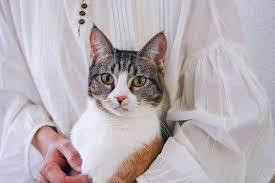Arthritis in cats
Arthritis, which is also known as degenerative joint disease (DJD) or osteoarthritis, is a long-lasting, painful disorder that affects a cat's joints. 70% to 90% of cats over the age of 12 are affected by the illness, which is frequently linked to aging.
The development of arthritis involves the breaking down of the cartilage that normally lines and cushions the affected cat’s joints. When the cartilage breaks down, it allows the cat’s bones to rub together abnormally. This often causes nearby bones to splinter and form sharp and bony projections into the feline’s joints, which leads to swelling, inflammation, and pain in the affected joints.
The joints most affected by arthritis in cats include the spine, hips, knees, and elbows. Once a cat contracts the illness, the condition progresses and worsens over time. The changes that result in the joints cause progressive pain as well as decreased mobility and sometimes lameness in the affected cats. That is the reason every cat owner requires basic knowledge about joint care for cats.
Joint care for cats
Joint care for cats involves maintaining the kitties’ joint health and mobility and preventing them from future joint pain. This involves keeping the cats’ weight ideal, ensuring proper nutrition and exercise, and providing Joint supplement for cats.
- Keeping the cats’ weight ideal
Among the primary approaches to joint care for cats is keeping the felines at an ideal weight from an early age. This entails helping them maintain an active lifestyle and ensuring they get routine veterinary care.
- Recognizing the role of nutrition
Smart cat parents who are keen on effective joint care for their furry friends will recognize the role of nutrition in ensuring their cats’ joints remain healthy. They, therefore, feed their cats with a keen eye toward portion control and obesity prevention from the pets’ early years.
Nutrition that is guided by a cat’s joint care needs picks the right meal plan for the cat based on the goal of optimal joint health for the pet. Smart cat parents work closely with their veterinarians when selecting cat food as well as nutritional supplements. Beyond the pet’s meals, discerning cat parents always ensure that the pets do not get additional scraps of human foods that can quickly enable them to add on unwanted weight.
- Exercise
A cat’s mobility and overall joint health are dependent on how active the pet is in its daily life. Every cat parent should ensure his or her cat exercises regularly, regardless of its size and age.
Regular cat exercises make the pet’s bones stronger and the joints more active. This leads to increased flexibility and protection against injury. However, when planning your cat’s exercises, pay attention to those that could trigger micro-injuries that could cause osteoarthritis. Seek the guidance of your veterinarian on the exercises that will be right for your cat.
An interesting way to make your cat exercise is to use puzzle feeders and have the pet forage for his or her food so as to promote physical activity. You could also try feeding the cat several small meals a day instead of two large meals. This, according to the American Association of Feline Practitioners, improves the cat’s mobility as well as its response to environmental stimulation.
- Joint supplements for cats
Several joint supplements for cats have shown significant promise for relieving arthritis-related pain and inflammation in cats. Glucosamine, chondroitin, omega-3 fatty acids, and curcumin are just some of the natural products researchers have studied for osteoarthritis and rheumatoid arthritis in cats.
When you’re looking for a good cat joint supplement, leading veterinarians recommend the use of only veterinary-formulated cat supplements such as Antinol for Cats, Cosequin for Cats, and ArthrlEase-Gold because they provide a good, drug-free way to help in the management of your cat’s arthritic pain and inflammation.
When to give your cat arthritis supplements
One of the leading questions I have received regarding giving cats arthritic supplements is what age is the right one for cat owners to do so. Let me finalize this article by stressing that whether your cat is young or old, giving it the correct veterinary-recommended cat arthritis supplements can be beneficial to the pet at any age.





Comments